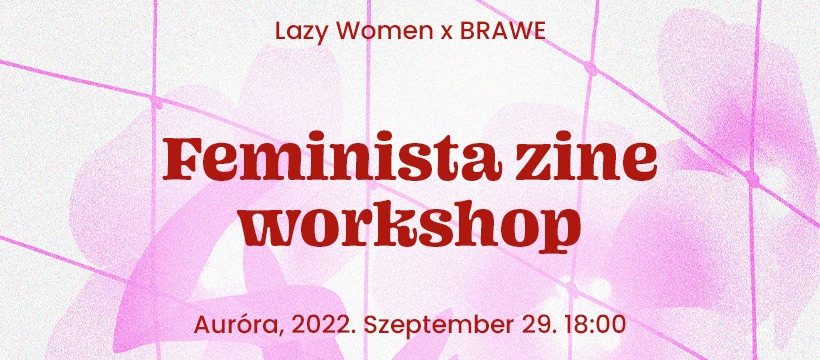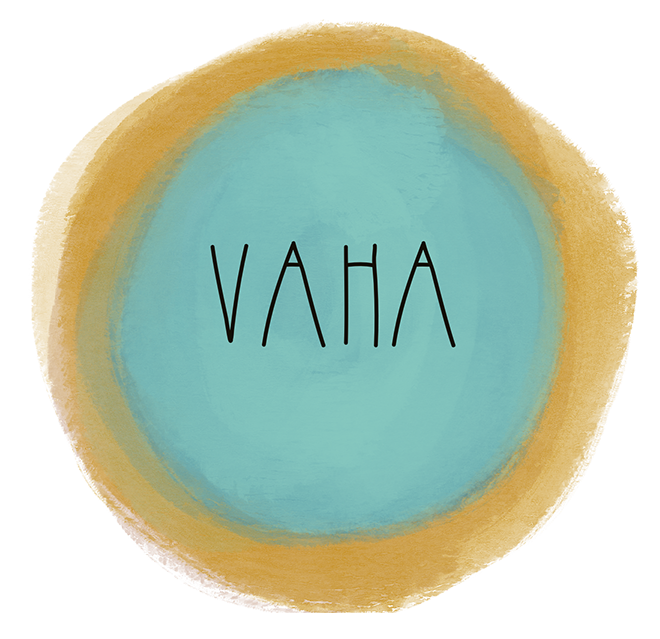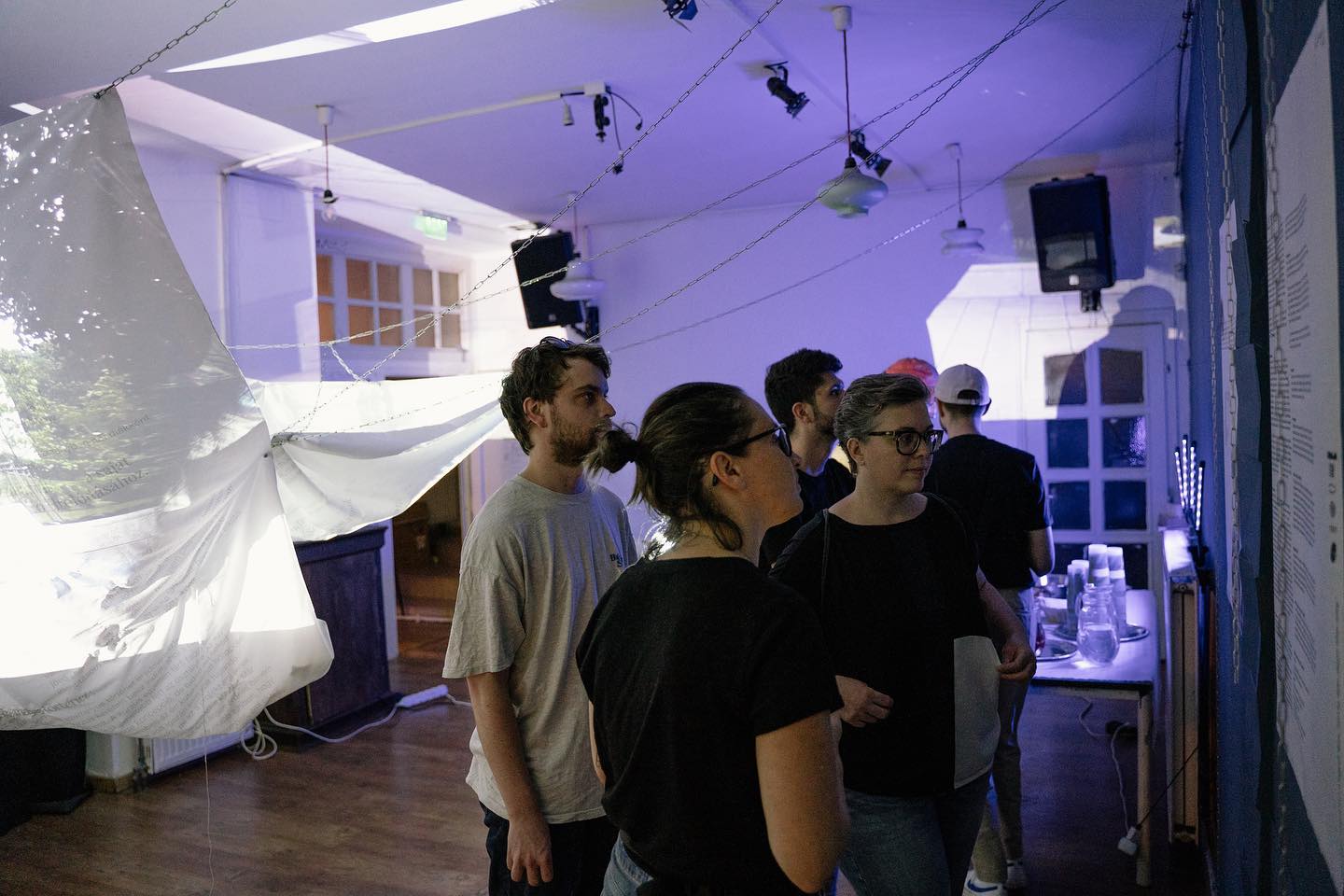BRAWE Cultural Actions and Exhibitions in Budapest
The Hungarian participants of the BRAWE project developed their own individual art projects which were curated by the project coordinators and also some of the lab experts were invited to give feedback on the initial ideas. The following public events were organised:
Klaudia Januško
Point Of No Return, Exhibition, 7-20 June 2022, Budapest
The focus of Klaudia’s research is the potential connection between cyberfeminism and neomedievalism. Her artistic interests also include the culture of online gaming and the ways it represents the female characters. A critical feminist attitude can be realised in both her research work and artistic process.
In the broader context of gender inequality and the phenomenon of the modern housewife, her installations can be interpreted as metaphors of becoming the Final Girl. Through this approach, she re-defines and offers the possibility of choosing roles. Her paintings usually depict women usurping the sword: a rather phallic symbol of power.
The exhibition space was ensured by the VII. District Erzsébetváros Municipality.
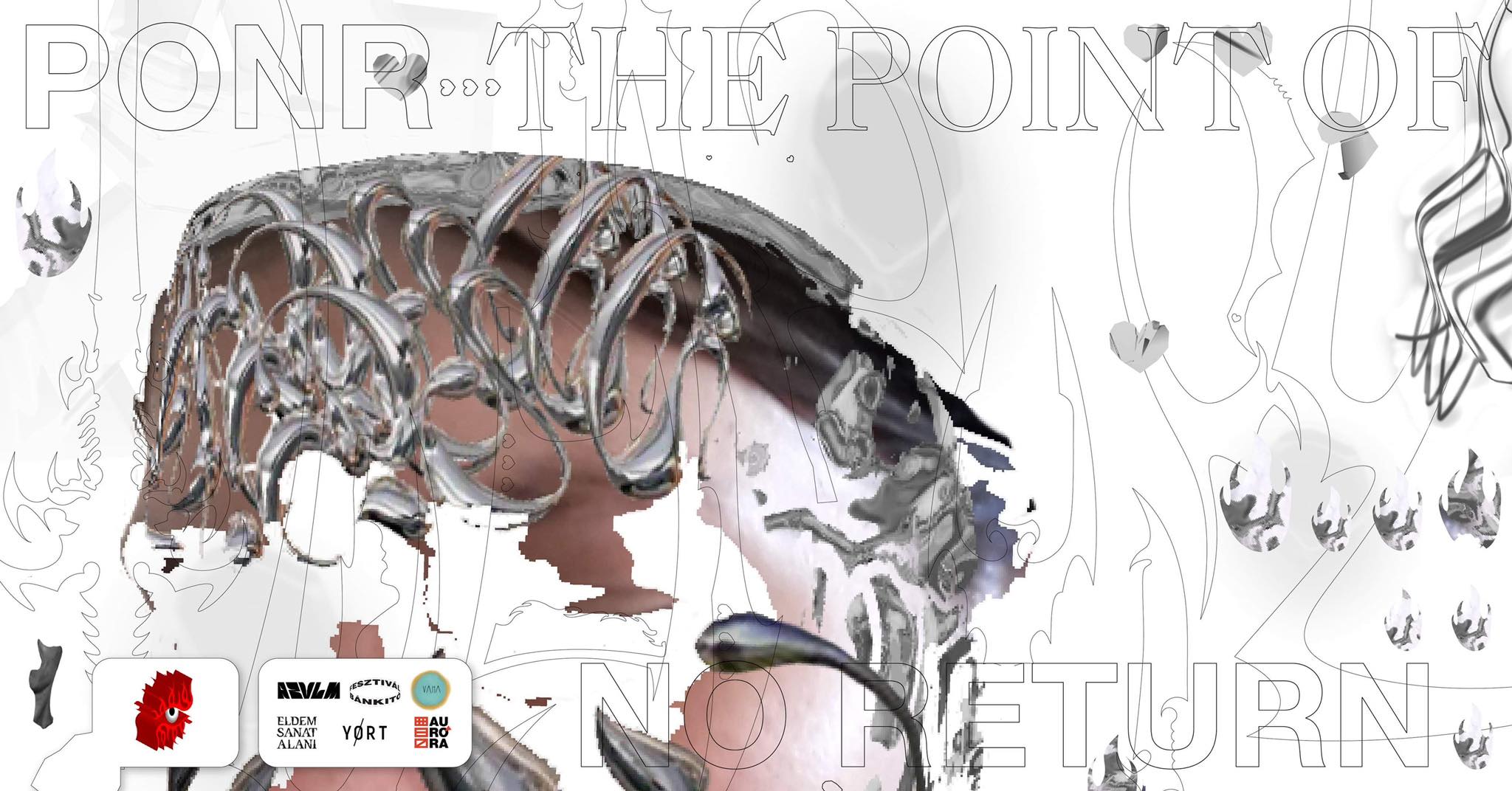
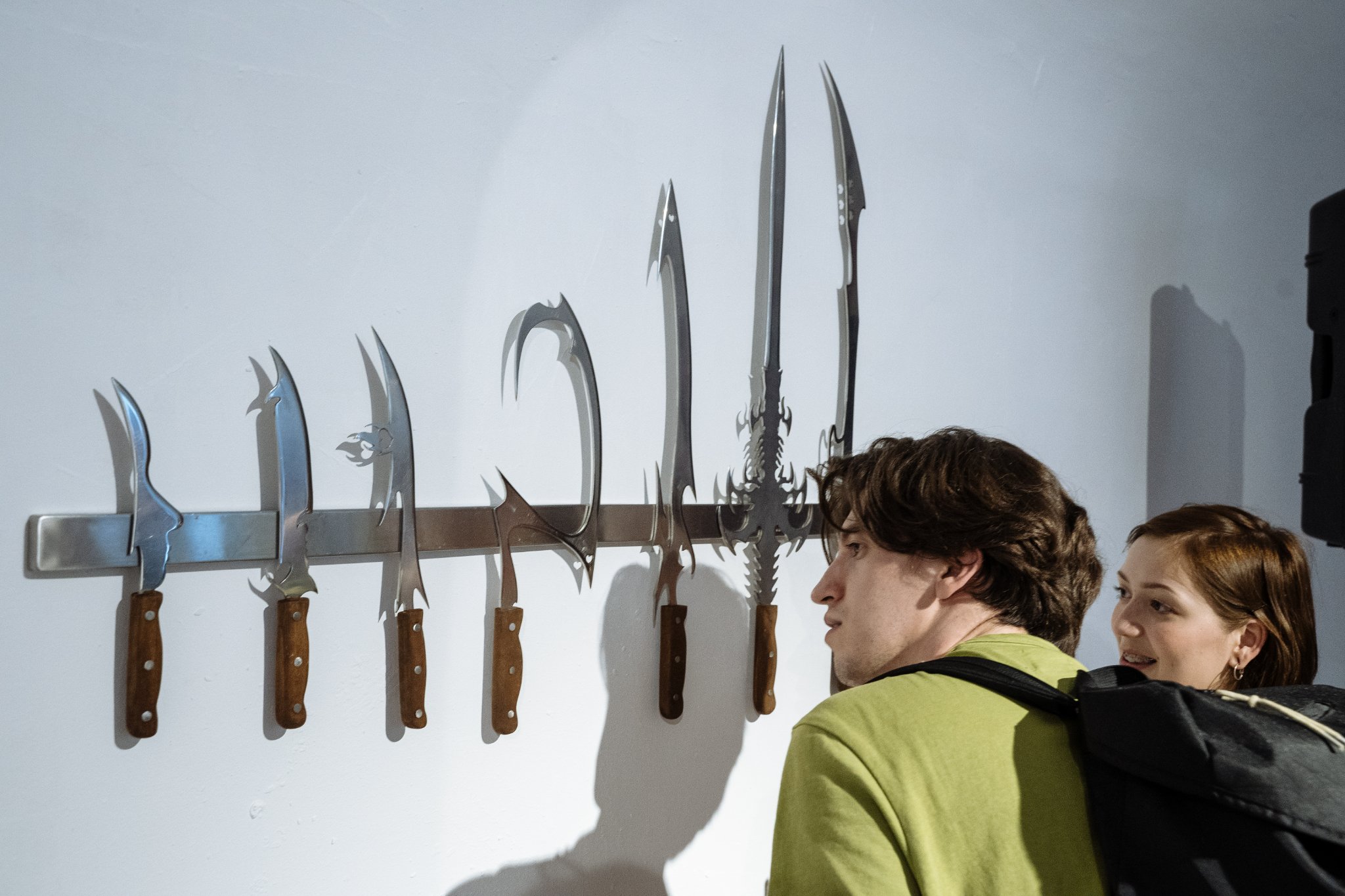
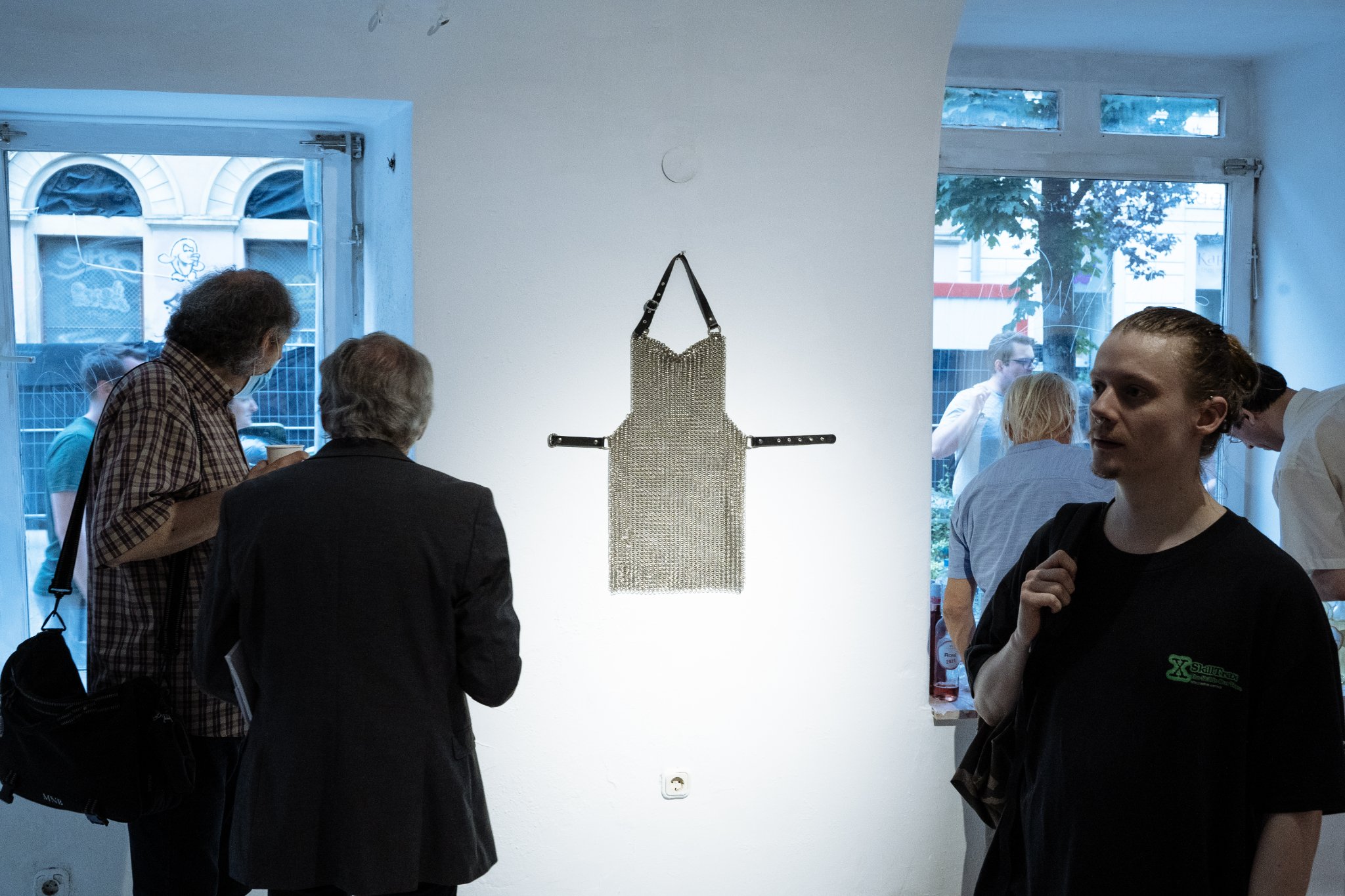
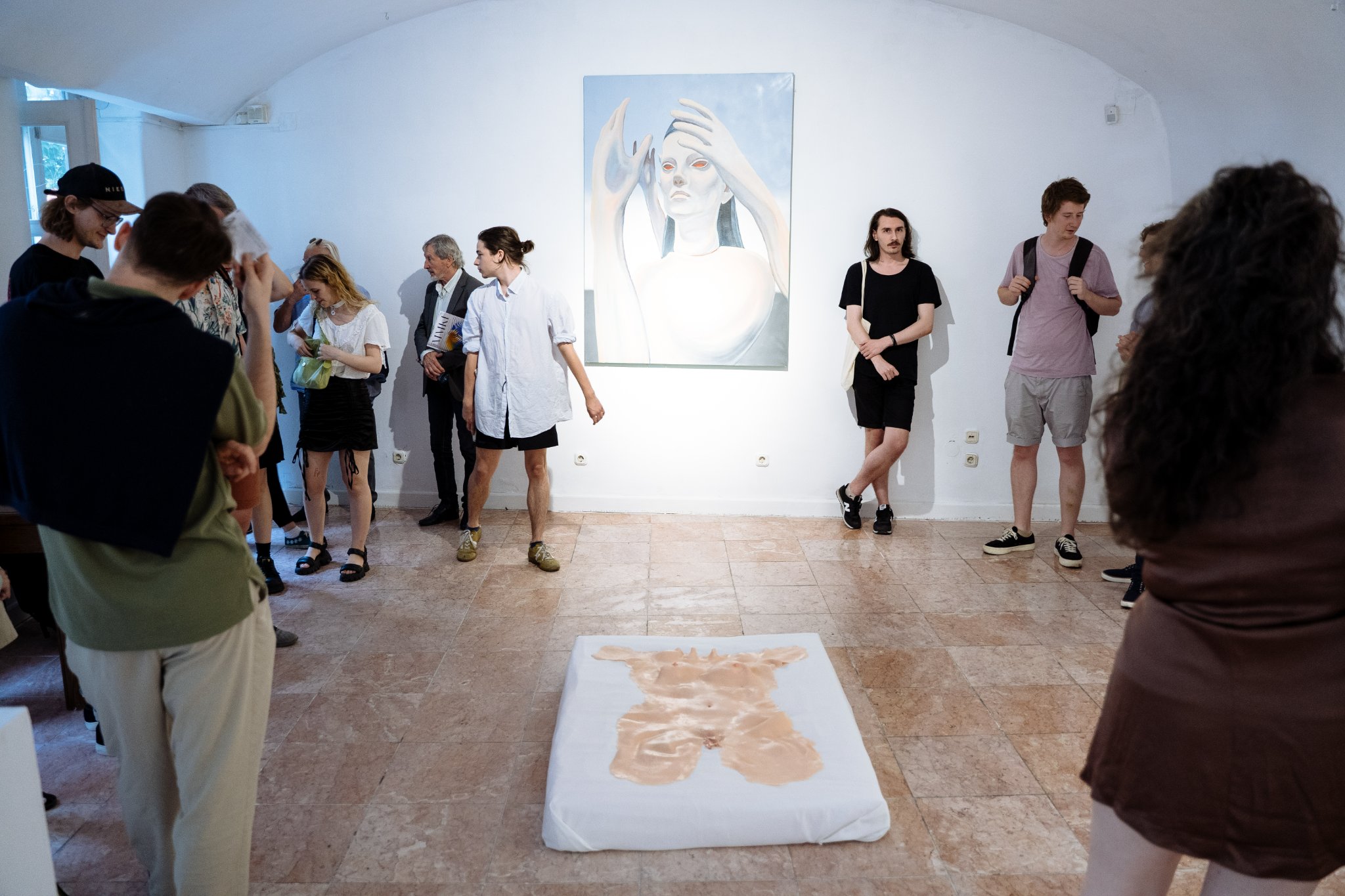
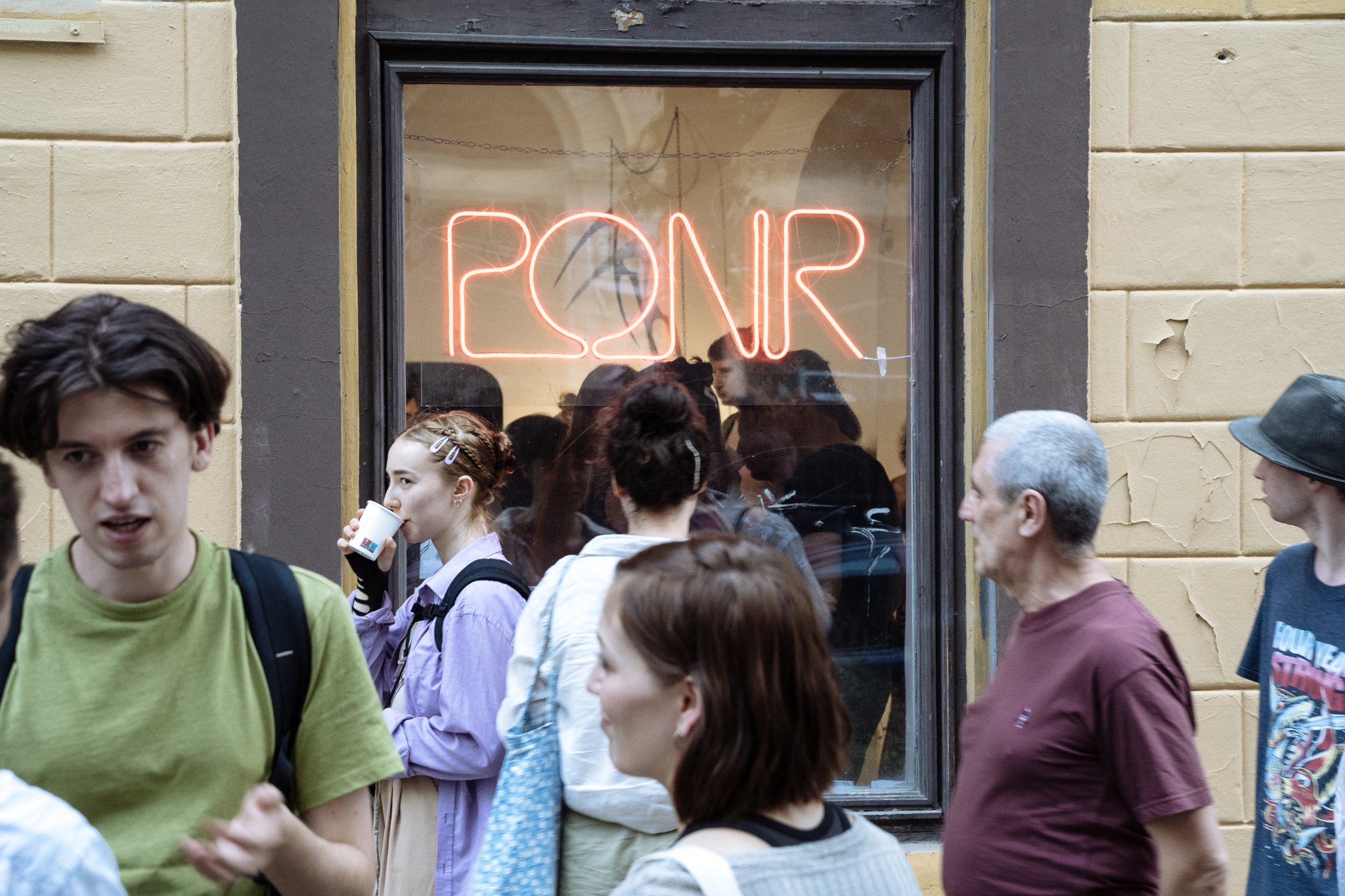
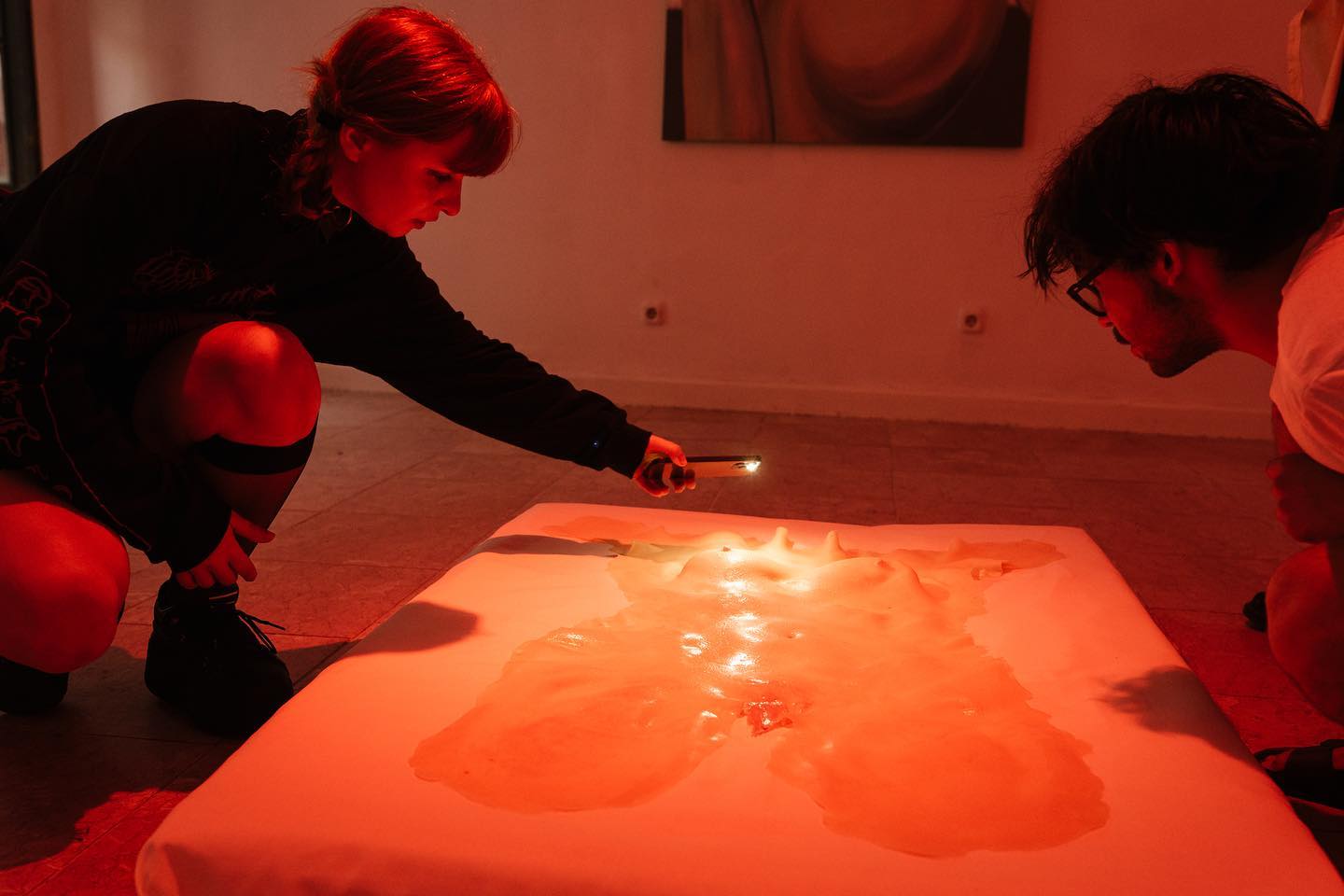
Renáta Szabó
Canvas Maid, 21 June 2022, Auróra, Budapest
Renáta Szabó’s Canvas Maid project analyzed the powerlessness and negative self-determination deriving from the contempt that is perceptible in higher educational institutions. Through Renáta’s own frustration with this system, the visitors were presented with a work that showcases the hardships that female students face during the artistic process. By creating this complex performative installation, she addressed the burning question: how does negative self-determination affect the artistic identity, the relationship to creation and the future career of female art students.
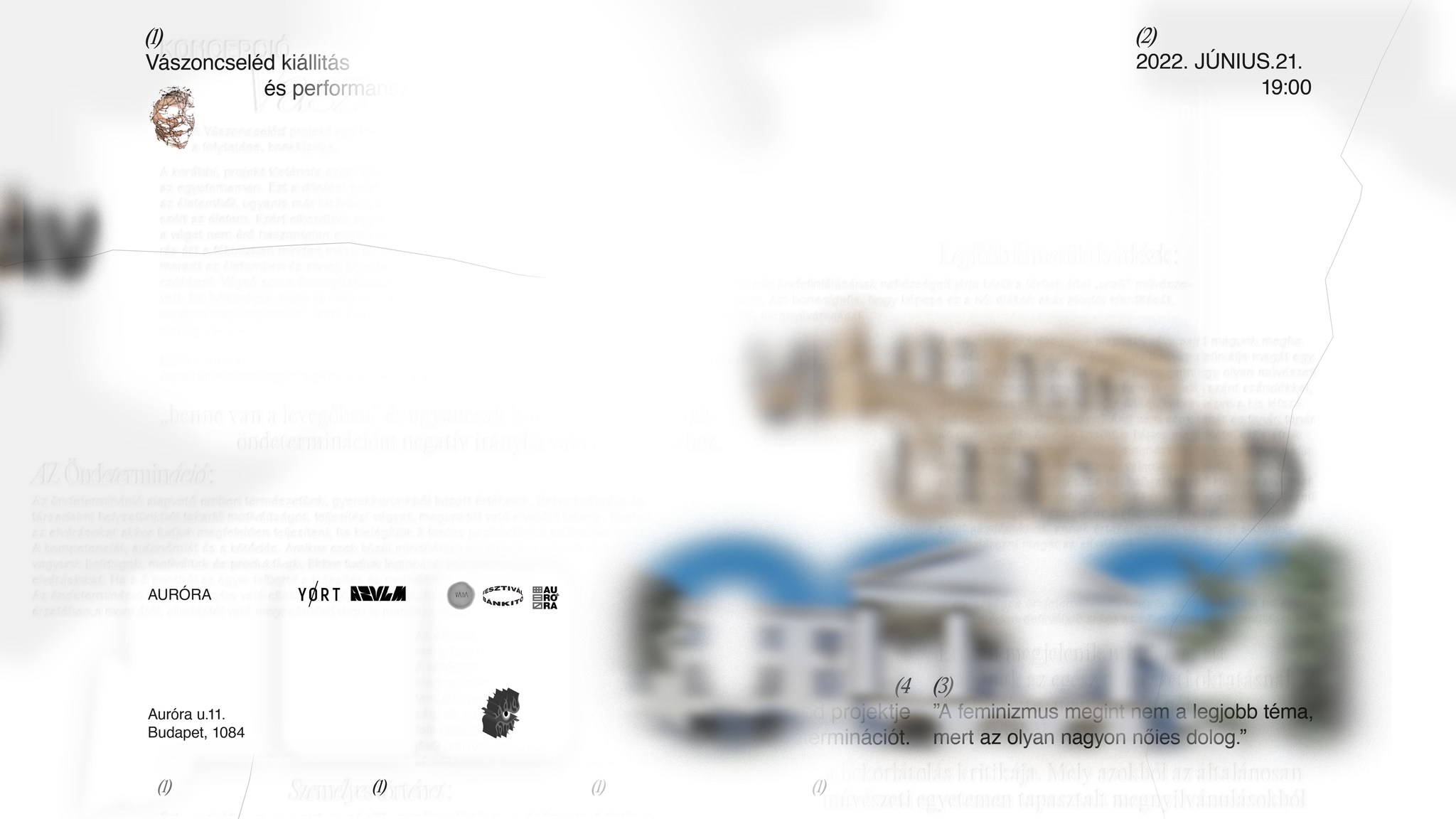
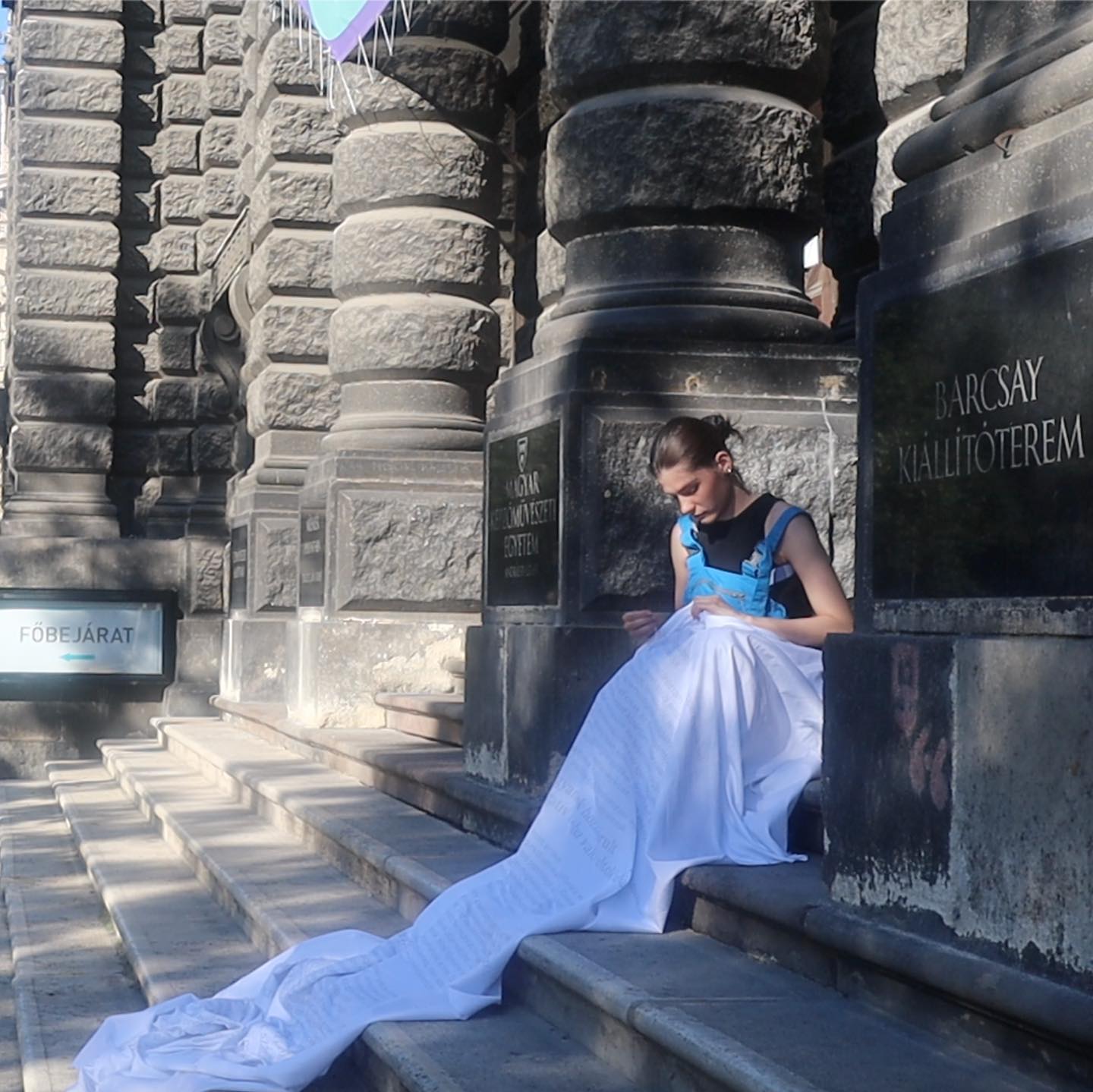
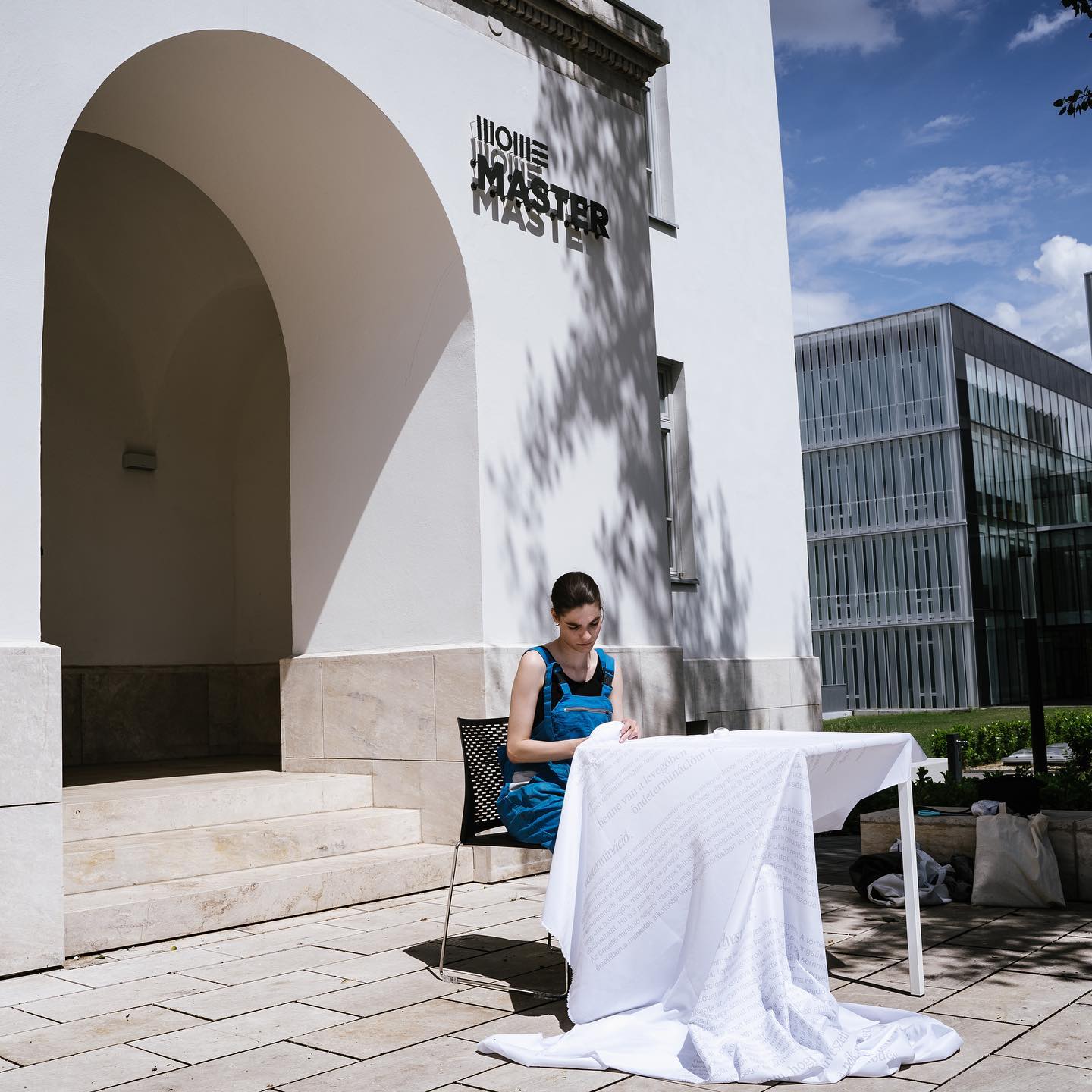
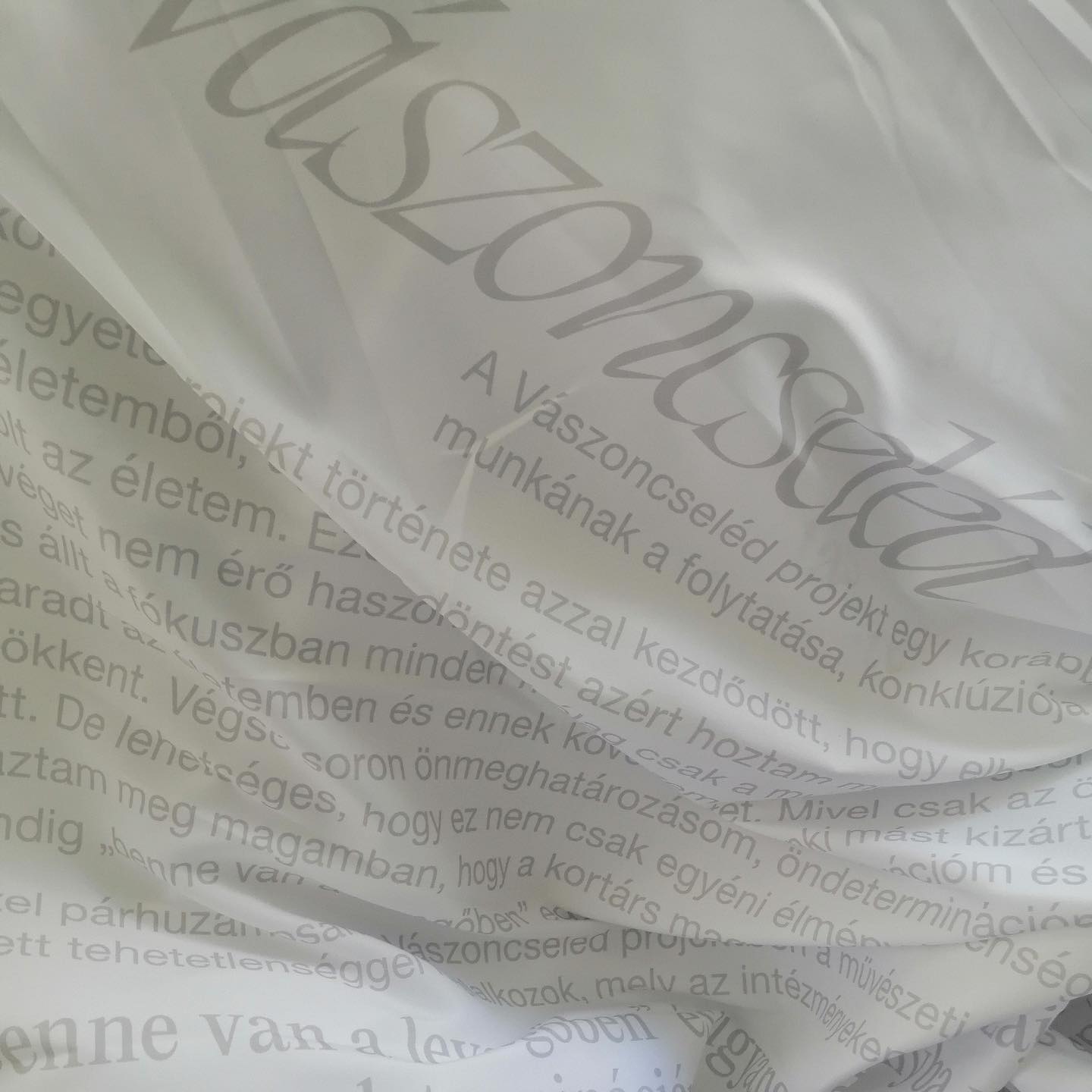
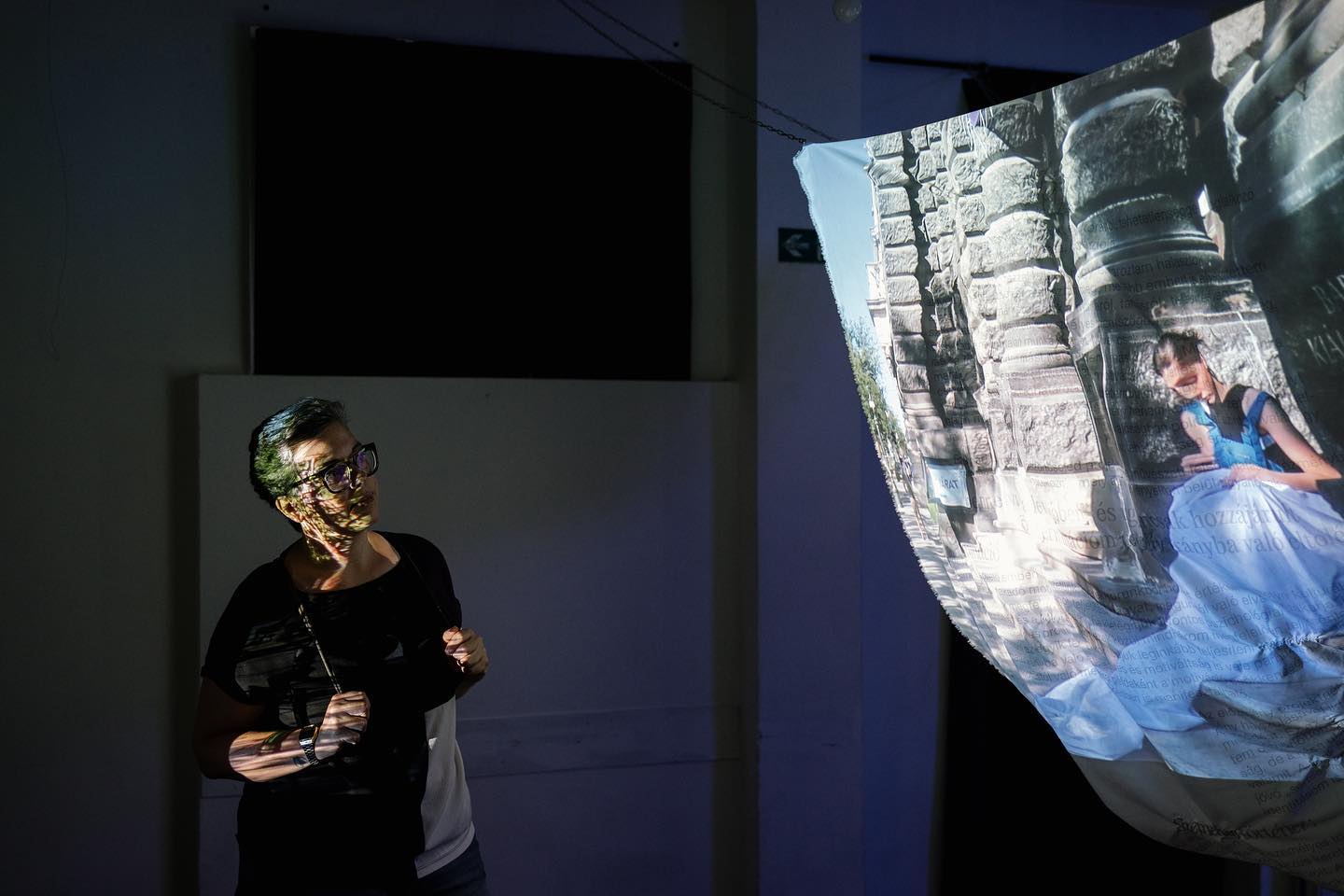
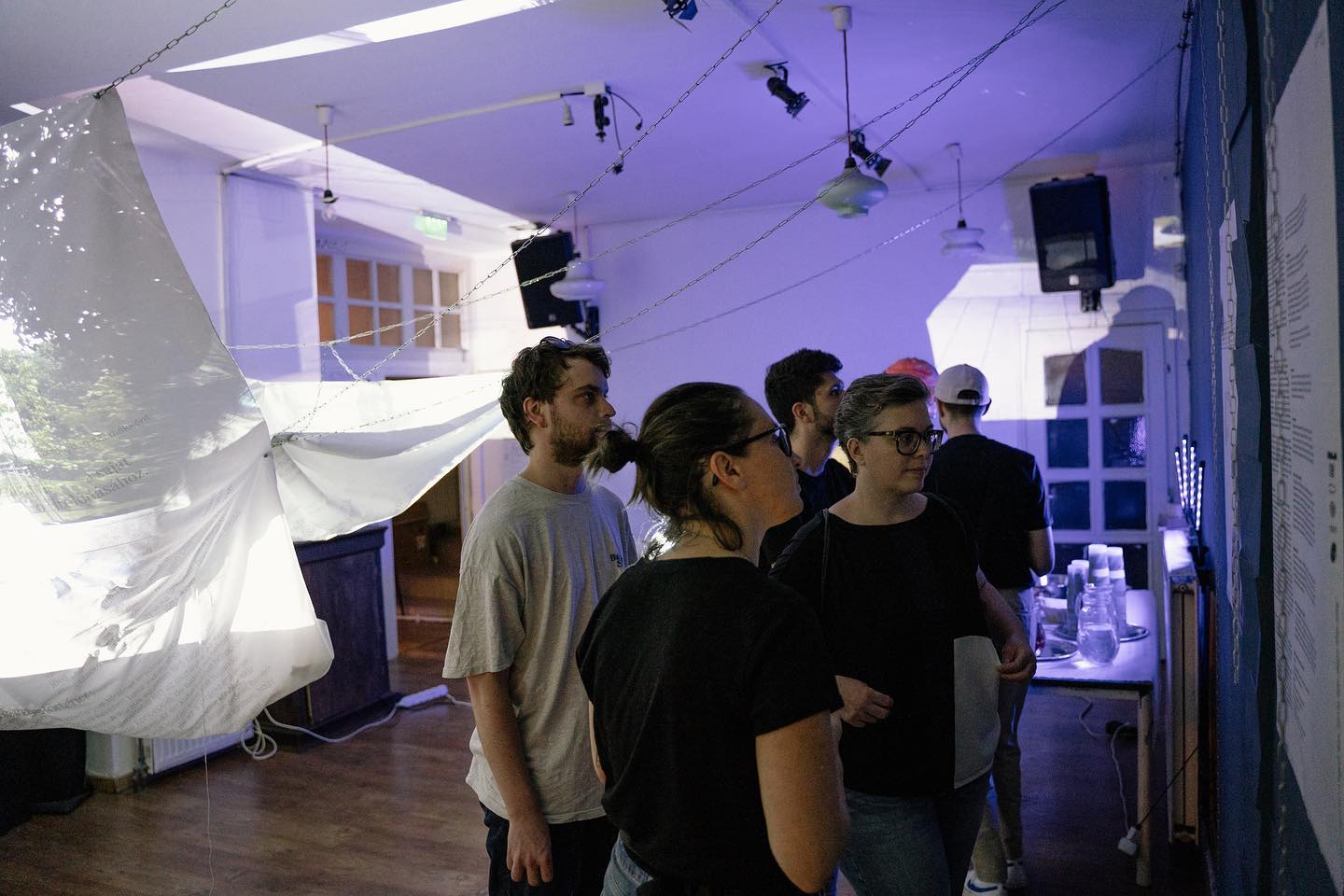
Franciska Kas
mediator gender, 18 June 2022 and 7 September 2022, alkotás13 (cultural and art therapy space), Budapest
Franciska was interested in gender roles from the beginning of the project. She did 10 interviews with women from different social backgrounds and asked them question about how they relate to their gender roles. Based on the outcomes of the interviews she designed a pack of cards with the characters based on those gender roles. Using the cards she was doing an art therapy workshop together with an art therapist.
“What comes to your mind when we talk about gender? Some people feel proud, curious, passionate and some feel anxious, scared and distant. Recently the discourse over gender has also become polarized. Not having the right Hungarian vocabulary makes our questions feel uncomfortable and we don’t have the intention to hurt anybody - so we stay silent. However, if we lean into our vulnerability, we will be able to gain valuable experiences. The aim of Franci Kas‘ associative card linked with the alkotás13‘s art theraphy workshop is to create an intimate, nonjudgemental space, where we can explore our feelings concerning gender identity. It provides help in realizing what we need in order to experience it more freely. During the playful process we will be able to share our innermost thoughts if we feel like it. No previous artistic experience is required to participate!”
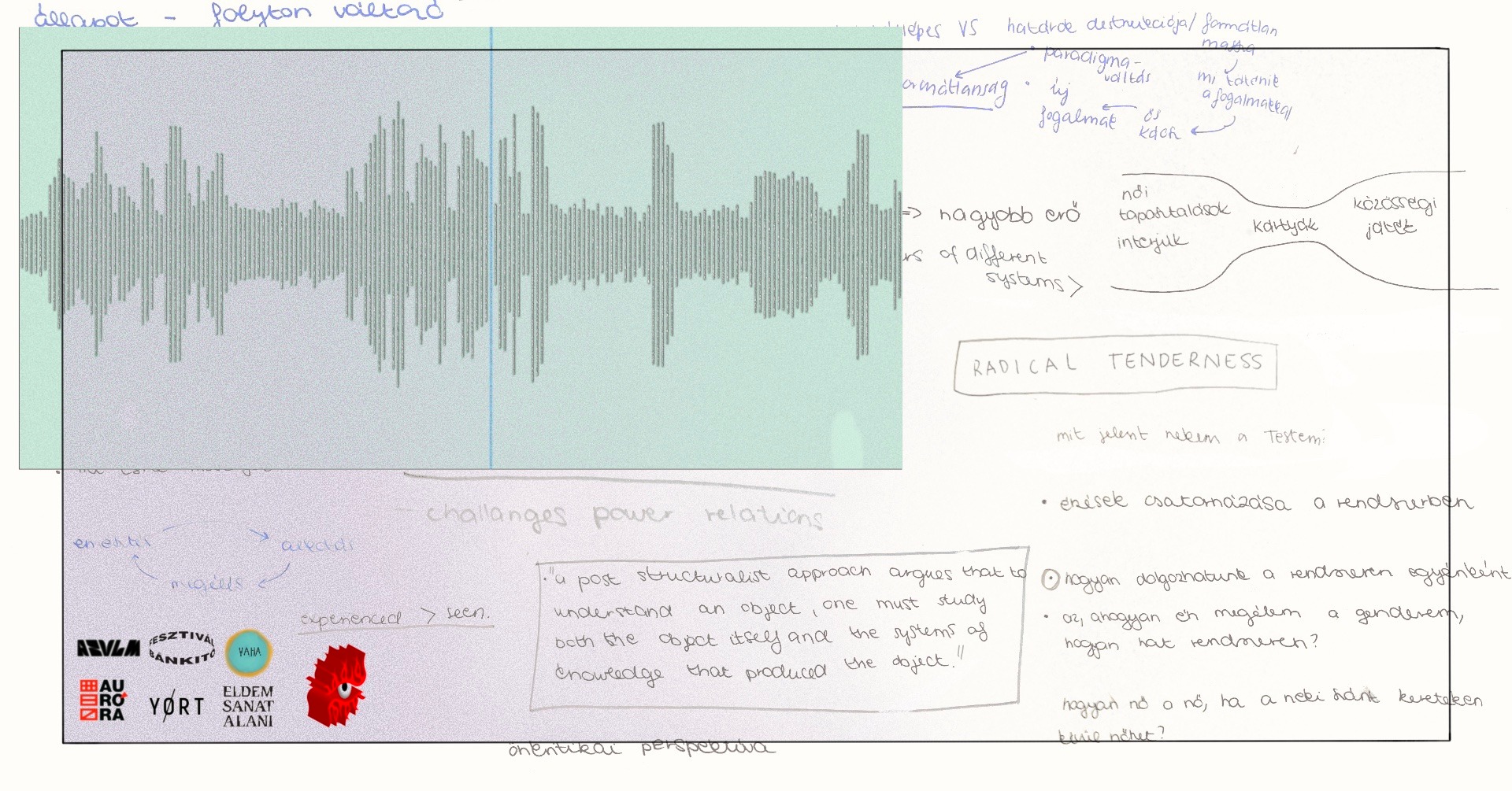
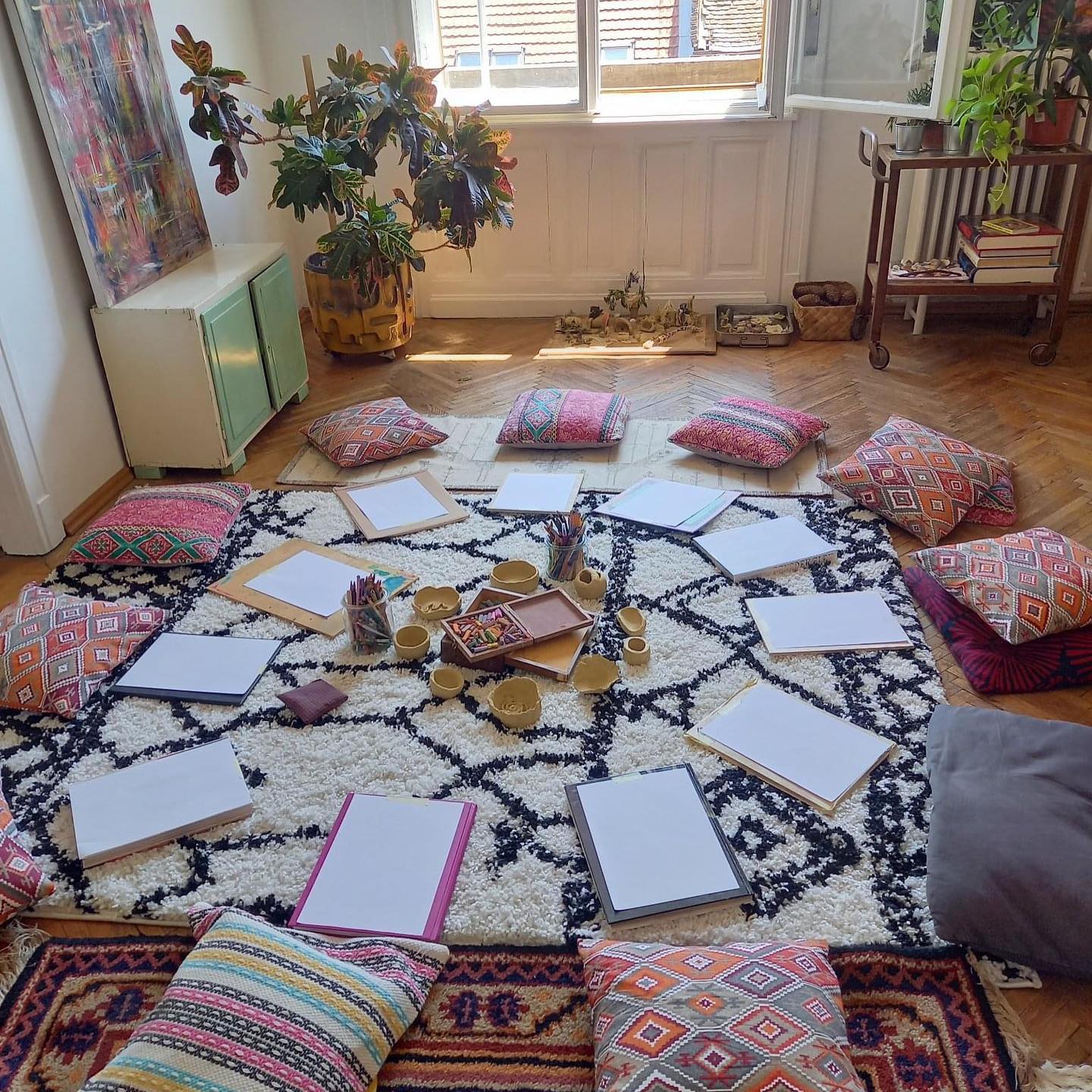
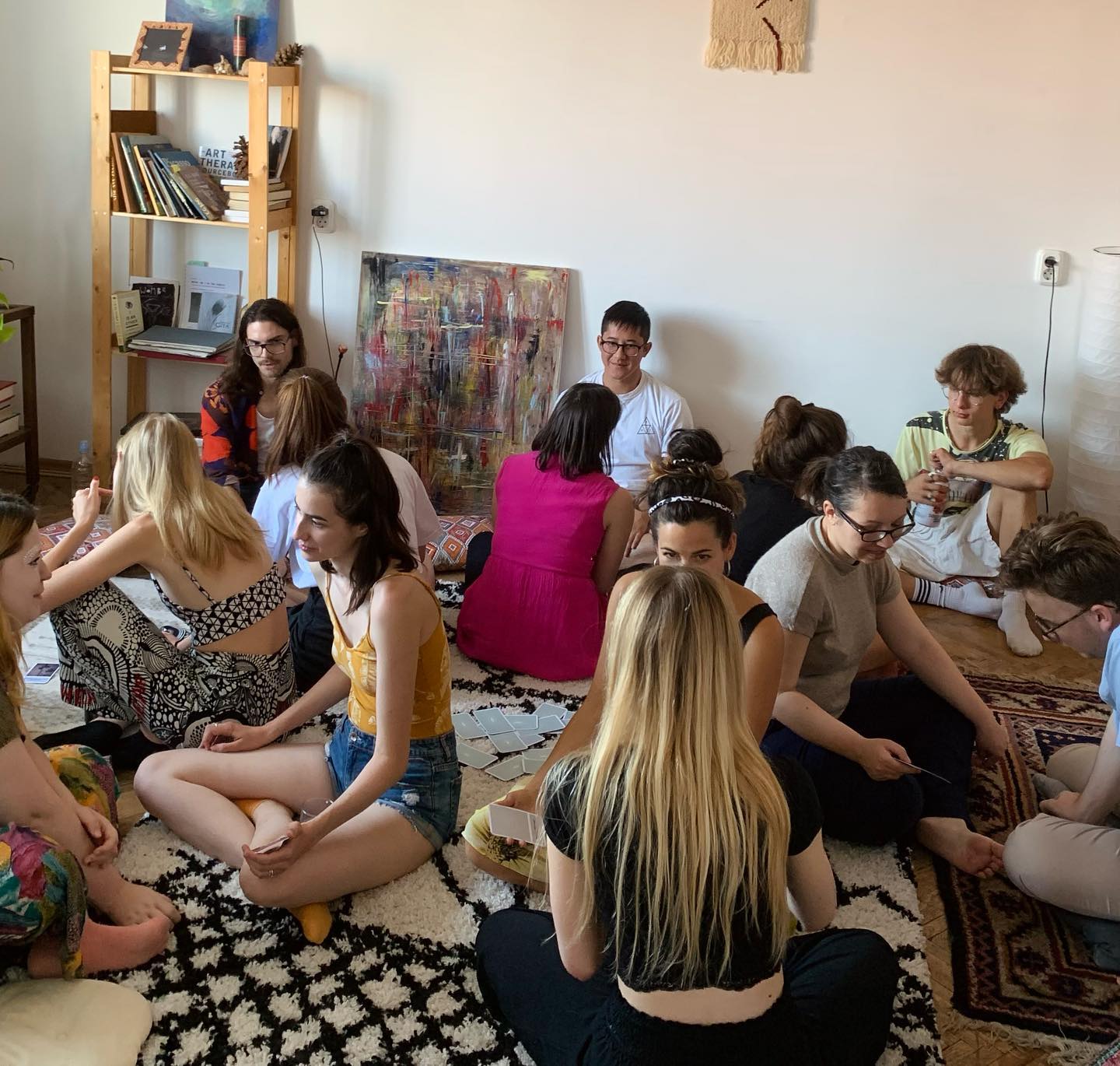
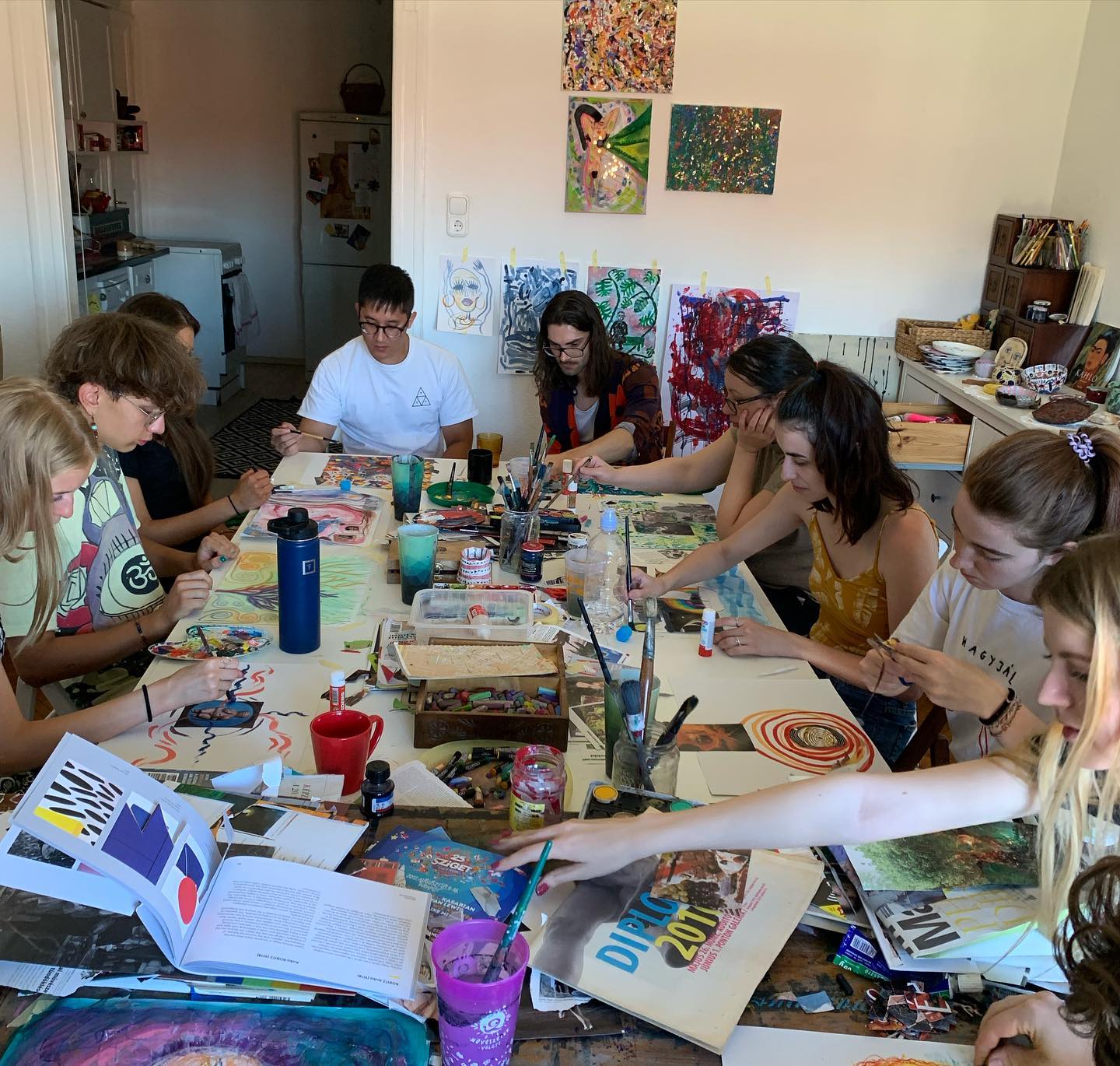
Dominika Drótos
Laundry, 22 June 2022, Square of Freedom, Budapest
Dominika was interested in invisible labour and the role of generations of women in the household, and the way those roles passed on from mother to grandmother. During her performance she was doing laundry by hand on a public square in the inner city of Budapest. The square is called Liberty Square.
“Invisible labor: this is how we refer to the kind of work that no one pays for - the kind of work no one even acknowledges. Cooking, cleaning and doing the laundry all belong to the category of unpaid housework. According to the 2022 report of Oxfam, women all around the world spend 12.5 billion dollar worth of working hours doing household chores. Their unpaid work contributes a shocking 10.8 billion dollars to our economy - three times the amount that the technology sector does.
The report shows how unpaid labor became the engine that fuels economic and societal growth. More than three-quarter of this type of work is done by women, who as a result are unable to receive extra education or find better jobs. The majority of them can only work part-time, or not work at all as 40% of adult women bear the responsibility of taking care of their children or elderly parents full-time all by themselves. Thus, they don’t have their own income which results in them not having the decision over social or economic matters.
Only 6% of men have to face the same problem.
The performance of Dominika Drótos renders the invisible work visible. In its location on Liberty Square, an emblematic place of political opinions, Invisible Monument cries out the question: when will our government realize and compensate for the effort of the people doing unpaid labor?
Curator, moderator: Ágnes Keszegh”
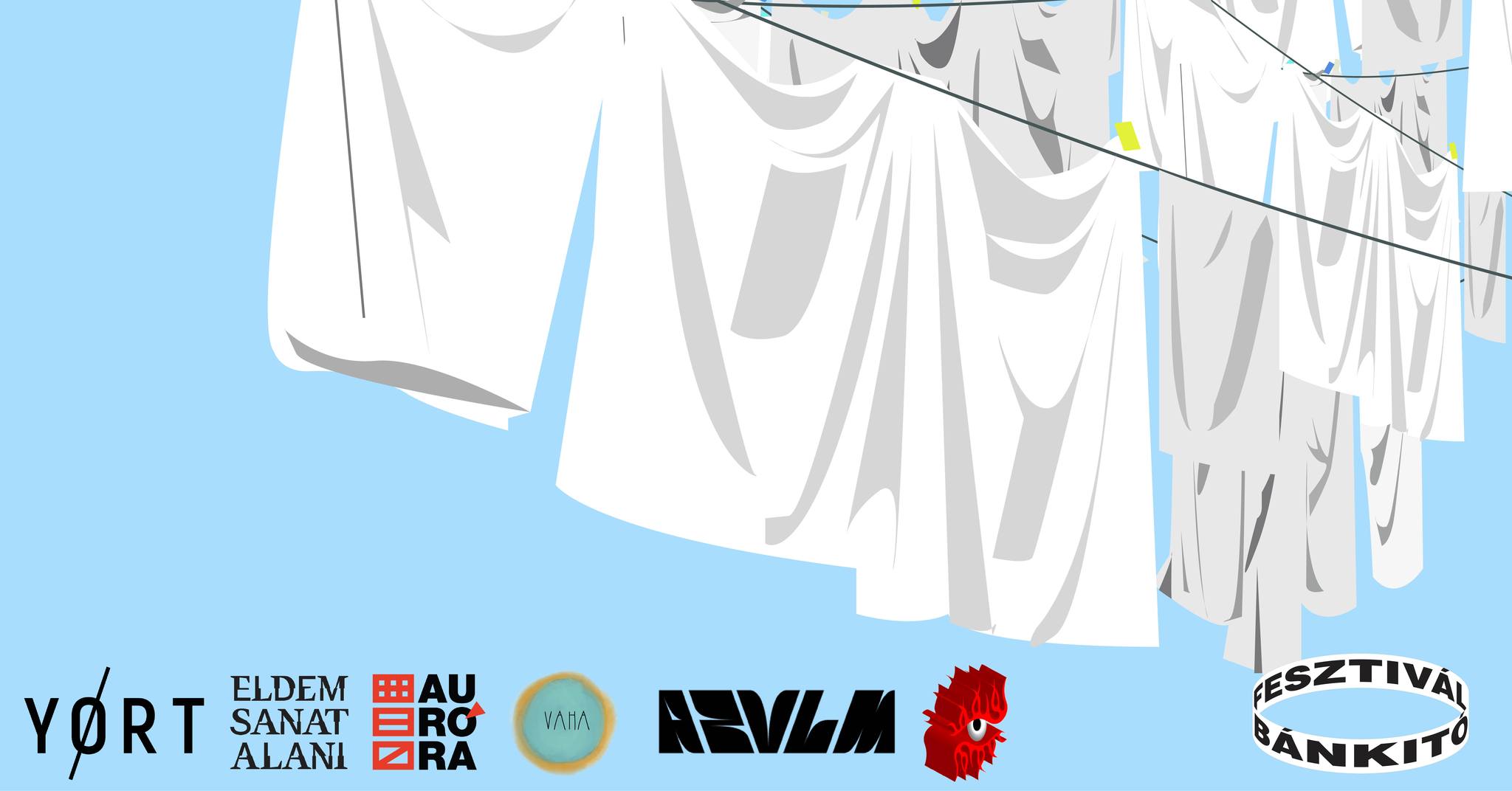
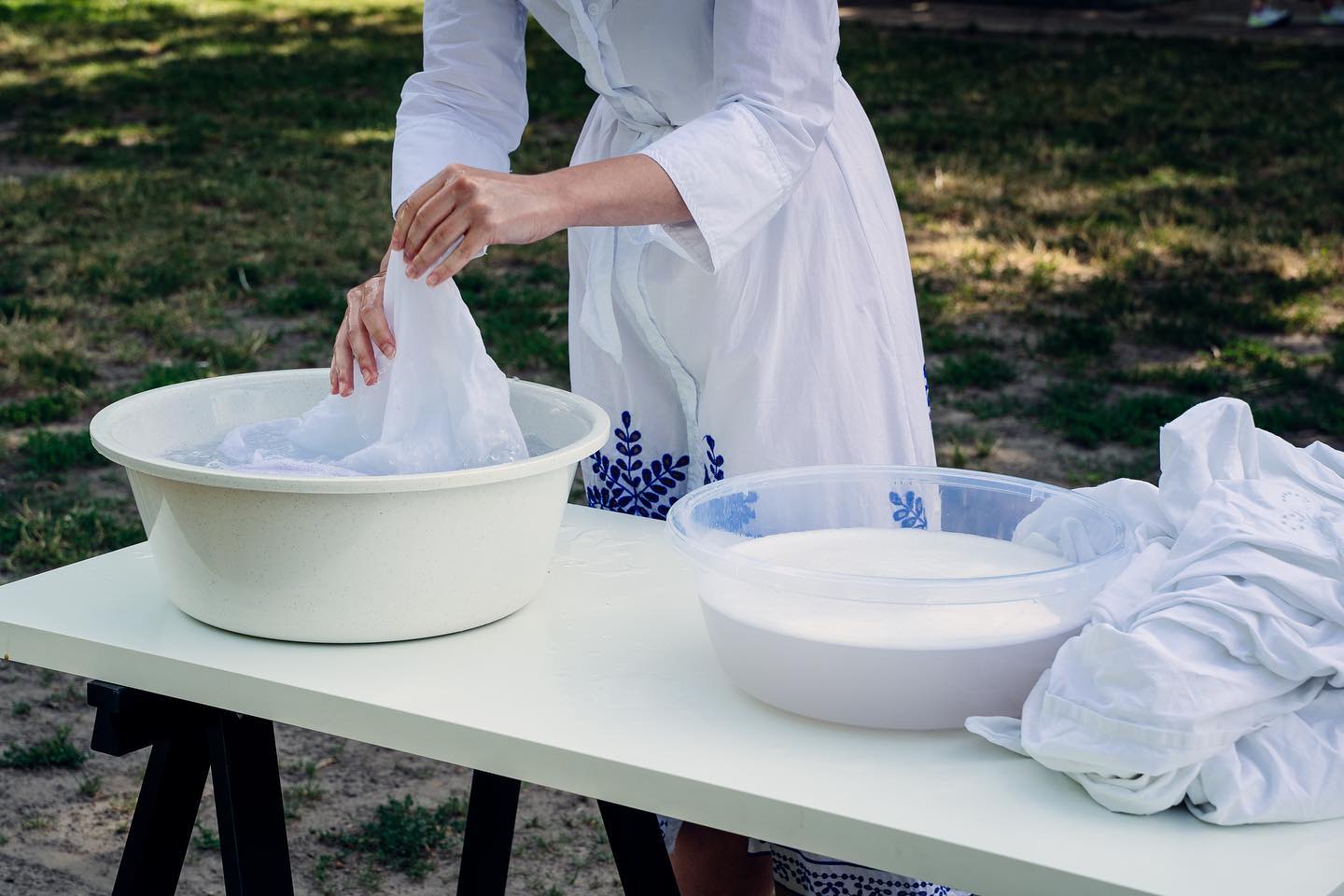
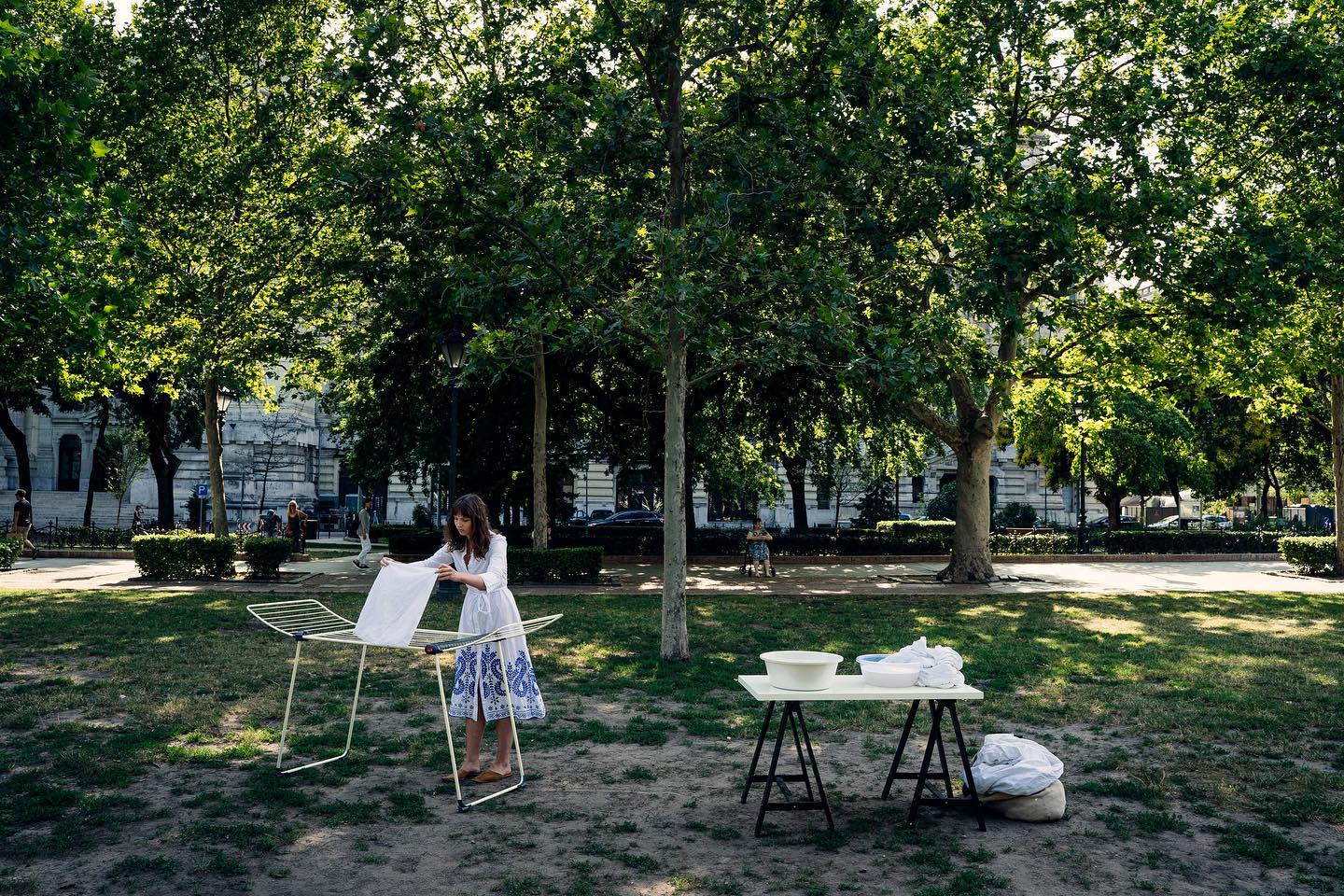
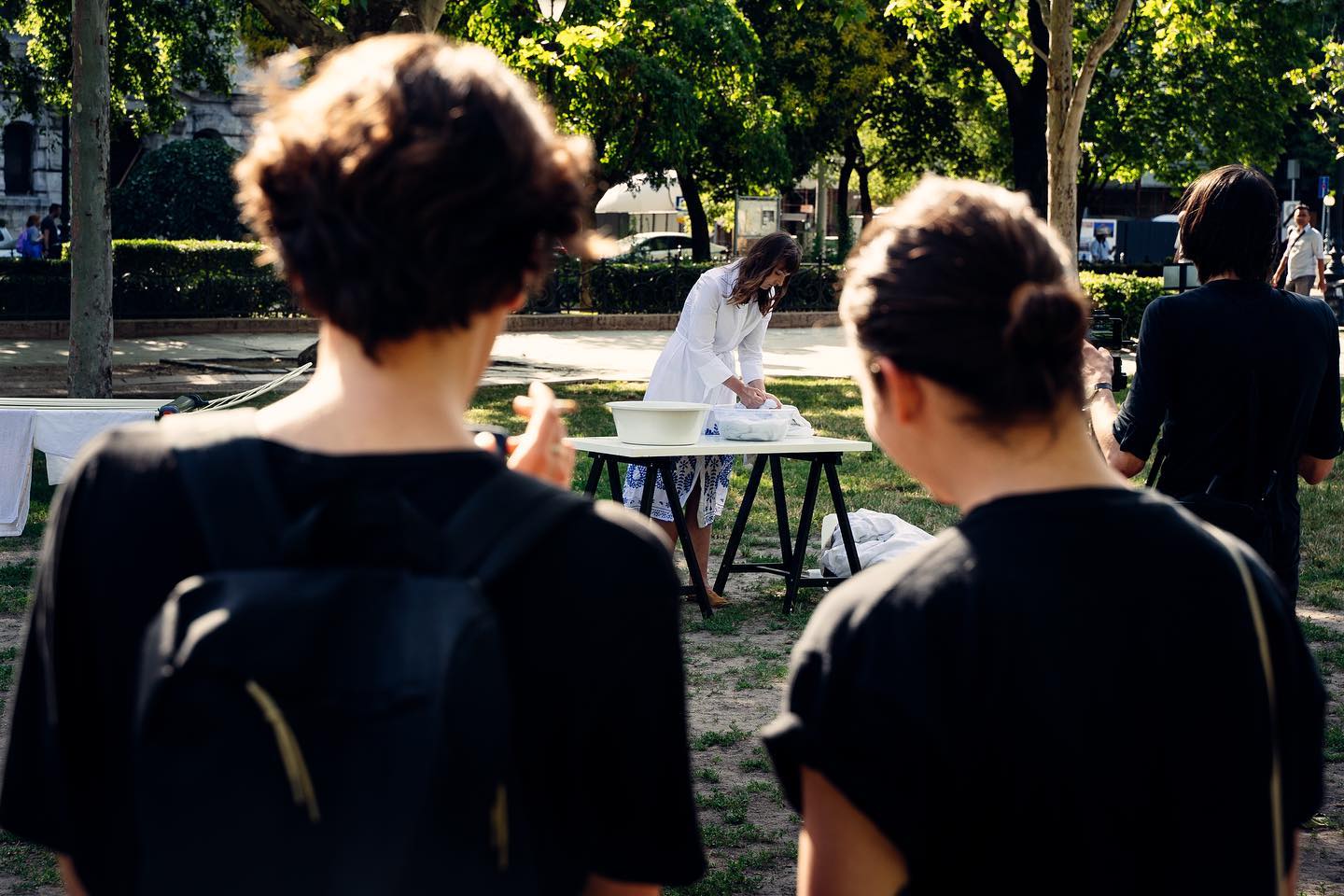
Magdaléna Szijjártó
2 July 2022, Kolorádó Festival
Léna was interested from the beginning of the project in women who suffered sexual violence. Her concept formed a lot throughout the project, she wanted to do something that reaches a wide variety of people.
Léna was doing interviews with women who suffered sexual violence and made a crochet dress then embroidered the most significant quotes of the interviews on the dress. During her performance, wearing the dress she was going around Kolorádó Festival (an undergorund music festival with contemporary art near Budapest) and starting discussions with visitors of the festival.
Nóra Csendes
Feminist zine launch and workshop, 29 September 2022, Auróra, Budapest
Nóra’s art project was her self-edited and illustrated zine in collaboration with the Lazy Women international feminist online platform which was initiated to criticize productivity culture. The launch of the publication included a zine workshop where likeminded “lazy” women and men could meet, do something creative while discussing the issues they felt strongly about. The workshop was held by the illustrator Nóra Csendes.
